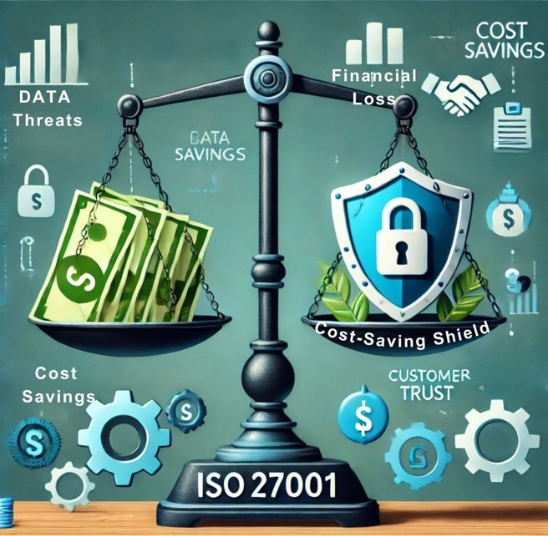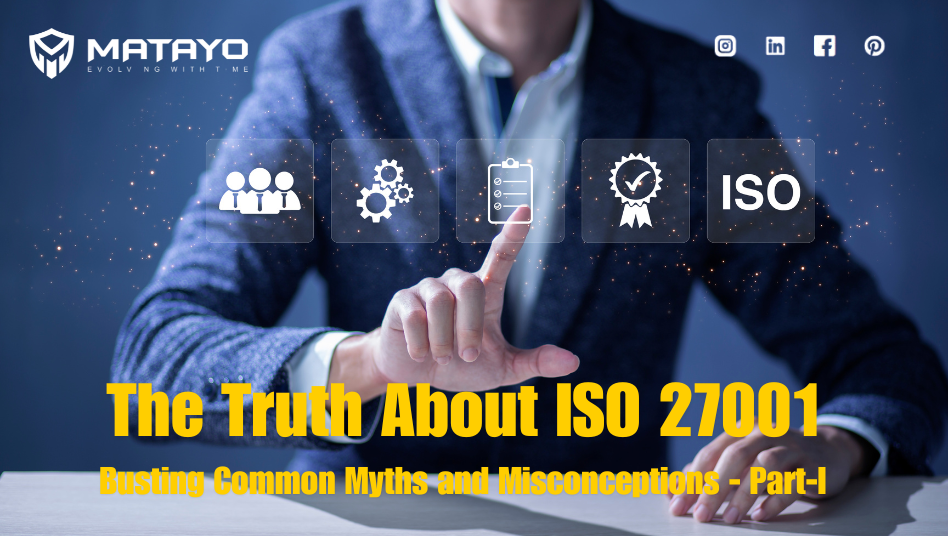Introduction
ISO 27001, the internationally recognized standard for information security management, is often surrounded by myths and misconceptions. These myths can create confusion and hesitation for organizations considering implementing ISO 27001, potentially leading them to miss its significant benefits.
The goal of this blog is to clear up these misunderstandings by addressing and debunking the top 10 myths associated with ISO 27001. We will explore the common misconceptions, such as the belief that ISO 27001 is only relevant for large enterprises or that it’s too complex and costly for small businesses. We’ll also tackle myths about the certification process, the standard’s flexibility, and its real-world applicability.
By the end of this blog, readers will have a clearer understanding of what ISO 27001 truly entails and how it can be effectively implemented to enhance their organization’s information security posture. Whether you’re a small business owner, an IT professional, or someone interested in information security, this blog will help you separate fact from fiction, allowing you to make informed decisions about ISO 27001.

Myth 1: ISO 27001 is Only for IT Companies
A widespread myth about ISO 27001 is that it’s solely applicable to IT companies. This belief couldn’t be further from the truth. While the standard is indeed essential for IT firms, its scope extends far beyond the tech industry.
Reality: ISO 27001 is a Universal
ISO 27001 is a flexible standard designed to protect information security across various industries. Whether you’re in finance, healthcare, manufacturing, education, or even non-profits, if your organization handles sensitive data, ISO 27001 can help you manage and protect that information effectively.
Why ISO 27001 Matters Across Industries:
- Finance: Protects financial data from breaches, ensuring compliance with regulatory requirements.
- Healthcare: Safeguards patient information, which is crucial in maintaining trust and meeting legal standards.
- Manufacturing: Helps protect intellectual property and trade secrets, which are vital for maintaining a competitive edge.
- Education: Secures student and staff data, which is essential for maintaining privacy and trust within educational institutions.

By achieving ISO 27001 certification, organizations demonstrate their commitment to information security, which is increasingly vital in today’s data-driven world. It’s not just about IT—it’s about safeguarding critical information, regardless of the industry.
Conclusion:
Don’t fall into the trap of thinking ISO 27001 is just for IT companies. If your organization deals with any form of sensitive data, ISO 27001 is relevant and beneficial to you. Embrace the standard to protect your information assets and build trust with your stakeholders.
Myth 2: ISO 27001 is Too Costly
A common misconception about ISO 27001 is that it’s too expensive to implement and maintain. Many organizations shy away from pursuing certification because they believe the costs are prohibitive. However, this myth overlooks the long-term financial benefits and cost savings that ISO 27001 can bring.
Reality: The Investment Is Worth It
While it’s true that implementing an Information Security Management System (ISMS) according to ISO 27001 standards requires an initial investment, the costs are often recouped through the numerous benefits it provides.
Here’s why the investment in ISO 27001 is justified:
- Cost of Data Breaches: The financial impact of a data breach can be devastating. The costs include not only the immediate expenses related to resolving the breach but also potential fines, legal fees, and damage to the organization’s reputation. ISO 27001 helps prevent these incidents by systematically identifying and mitigating risks.
- Operational Efficiency: By implementing ISO 27001, organizations often discover inefficiencies in their current processes, leading to improvements that can reduce costs in the long term. Streamlined processes, better risk management, and enhanced decision-making all contribute to cost savings.
- Customer Trust and Market Advantage: ISO 27001 certification can be a significant differentiator in the marketplace. It shows clients and partners that your organization takes information security seriously, which can lead to increased business opportunities and customer retention.

Case Study: A Real-World Example of a Financial Firm getting ISO 27001
Consider a mid-sized financial firm that was initially hesitant to pursue ISO 27001 certification due to cost concerns. After assessing the risks, the firm decided to go ahead with the certification process. Within a year, they not only achieved certification but also identified and eliminated several vulnerabilities that could have led to a major data breach. The savings from avoiding just one potential breach far exceeded the costs of implementing ISO 27001.
Conclusion:
Don’t let the fear of upfront costs deter your organization from pursuing ISO 27001 certification.
The long-term savings, improved security posture, and increased trust with customers make it a valuable investment. Ultimately, the cost of not implementing ISO 27001 can be far greater.


